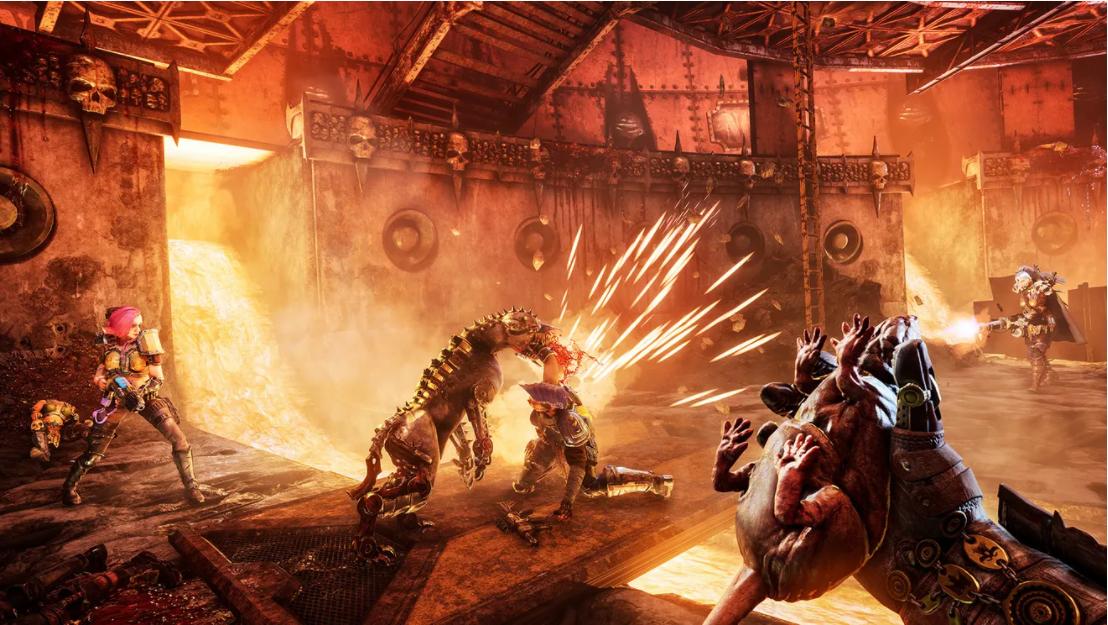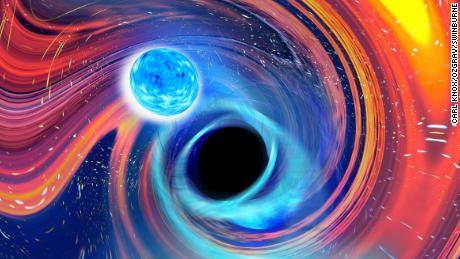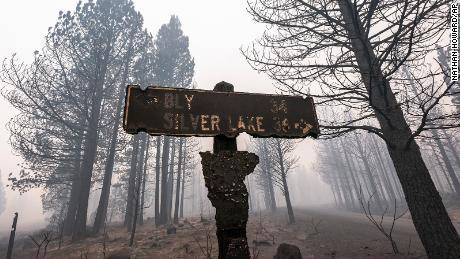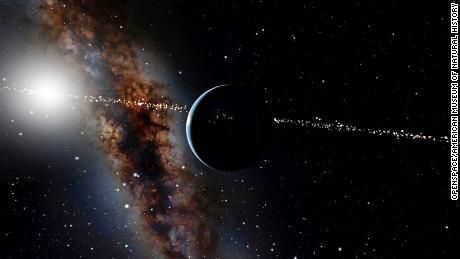Science Fiction: The 100 Best Novels
10 Best Science Fiction Books Of All Time

Science fiction quite literally means the literature of change; this includes all the modern day technological and scientific advancements to create an imaginative future. The sci-fi genre can be subdivided into astronomy, astrophysics, fantasy, science, time travel and so much more that it is beyond the scope of this article to discuss them all. Hence when I sit back to contemplate the top 10 of the list it is impossible not to exclude some of the ‘all-time-favorites’. The science fiction experts reading this blog might give the writer a condescending nod as I leave out their top best science fiction books, however, I’m going to take the risk and go ahead with my list.
1. Dune by Frank Herbert
As cliché as this might be (since this book seems to be the number one on every list), this book just seems to be a classic, a story that can be read over and over. Therefore Dune has turned up as the number one on my list.
The novel is set about 20,000 years ahead with Dune Leto as the main character. The plot of this novel takes some excitingly shocking twists that leave the readers in suspense. The ending is definitely a cliff hanger which will make the reader want to keep reading on. The Dune series have been a popular hit since the 1990’s coming a long way up to 2009.(Buy)
This book is set in the future. About a simple cowboy who turns into a cyberpunk and gets caught up with a shadowy organization that turn out to be cyber terrorists. The novel takes some mysterious instructions to moving through cyberspace. The author captures the complex cyber technology, mystery and excitement in his novel.
Therefore if you are a ‘cyberpunk’ or and ‘IT freak’ you should undoubtedly give this novel a read.(Buy)
3. The Time Machine by H.G. Wells
This must have been of one of my favorites as I was growing up when the entire idea of time travel and a time machine, to me, sounded so bizarre!
As the name suggests this book is about a time machine created by the time traveler, the star of this story. The time traveler travels through different times going from 802,701AD and making several stops after which he ends up thirty million years into the future. The story takes the reader through the different times; the reader is in a trance as travelling through with the time traveler into the whimsical world of HG Wells.(Buy)
4. Frankenstein by Mary Shelley
There have been so many Frankenstein stories out in the market that the audience almost wants to say ‘Yet, not another one of the Frankenstein’s monsters!’. However this novel supercedes all those novels that have not failed to saturate our brains.
This story revolves around Victor Frankenstein’s tragic story- the story of Frankenstein’s monster.
The story of Victor is told in third person by Robert Walton who narrates to the audience every detail about Victor’s life. Victor being the genius since childhood, ends up accidentally creating a monster. The monster is now dedicated to avenge his rejection from mankind from his creator and his creator’s family.(Buy)
5. Hyperion by Dan Simmons
The reader is taken into another dimension, another world, another time. In a world called Hyperion a creature named Shrike is worshiped, feared by some, and hated by the others. Due to the contradicting beliefs of the people of Hyperion the entire galaxy seems to be at war. Seven pilgrims to Hyperion hold several mysteries that are unraveled towards the end of this novel. Definitely a page turner!( Buy
6. The Left Hand of Darkness by Ursula K. Le Guin
Only my second novel on the list by a female author, as we know women are not well appreciated in the sci-fi genre, it was important for me to mention this outstanding author, Ursula who breaks the stereotype of science-fiction being a male oriented domain. The book deals with issues of gender crisis and identity. The characters of this story are gender-less with conflicting human characteristics. Ursula has portrayed this unique plot magnificently. This novel will give you goosebumps. A must read.(Buy)
7. The Forever War by Joe Haldeman
The forever war by Joe Haldeman is a series of novels; here’s a little about the first novel of the series. The novel is based on a fierce alien that seems to have a hostile approach. The hero, William Mandela propelled through space takes changes of saving his planet and goes through any challenges that he has to survive through.(Buy)
8. The Stars My Destination by Alfred Bester
This nerve-racking novel portrays an imaginative future in which the people protect themselves from the radioactive hit men.
The book takes the reader through a journey with a mix of emotions about the main character, Foyle. Great read, highly recommendable.(Buy)
9. The Foundation Trilogy by Isaac Asimov
This trilogy has served as an inspiration to many in the science fiction genre. This novel takes you on a voyage to a time beyond our imagination. A time so far ahead in the future that the humans have settled into the galaxy to explore the universe. This novel welcomes you into the world of fantasy, a world where there are no limitations and everything can be worked out into a mathematical equation. This will push your imagination to the edge and excite your neural cells.(Buy)
10. The Book of the New Sun by Gene Wolfe
The book of the new sun by Gene Wolfe is one of the series. The story has a fantasy background, concentrating on magical wonders and powers. The plots set around as we are introduced to a dying sun and the ‘Conciliator’ who happens to be the savior of the earth but is not aware of it as yet. The character has been bestowed magical powers. The ‘Conciliator’ faces many challenges before he is crowned and set to world to be judged. His aim is to save the life of a dying world.(Buy)
20 Best Sci-Fi Books of All Time
I'm the first to admit it took me some time to get into science fiction. As a kid, I fell asleep to my mom reading me the Lord of the Rings trilogy, and I graduated to C.S. Lewis once I could take over from there. But even though I spent hours trying to push through the back of my parents' closet and trying on every ring in mom's jewelry box in the hopes that one would turn me invisible, I always considered sci-fi the realm of the sweaty boys gathered in the living room with my brother.

But now that I'm older and wiser, I've completely changed my tune. The best sci-fi books aren't obtuse and inaccessible like I once thought. They're not written in some other language that relegates them to the math and science-brained. On the contrary, sci-fi's rich world-building, imaginative plot lines and deeply human thematic elements bring other worlds right down to Earth. We've rounded up the science fiction heavy-hitters that have made a real impact on the genre, have changed the literary world for the better or have just burst onto the scene with a comet-sized splash. Whether you're into near-future dystopias that imagine what the next hundred years might look like or prefer to send your brain to a galaxy far, far away, you'll have a wild ride on one of these fantastic sci-fi journey.
Want to find your next page flipper after you finish this list? Check out these YA books for teens, best reads for kids and ones that are exclusively for adults.
Science Fiction: The 100 Best Novels
1985 book by David Pringle
Science Fiction: The 100 Best Novels, An English-Language Selection, 1949–1984 is a nonfiction book by David Pringle, published by Xanadu in 1985[1][2] with a foreword by Michael Moorcock. Primarily, the book comprises 100 short essays on the selected works, covered in order of publication, without any ranking. It is considered an important critical summary of the science fiction field.[3][4][5]
Pringle followed Science Fiction with Modern Fantasy: The 100 Best Novels (1988).[6] Xanadu followed Science Fiction with at least three more "100 Best" books (below).
Scope [ edit ]
In the introduction Pringle offers the working definition, "Science fiction is a form of fantastic fiction which exploits the imaginative perspectives of modern science." In turn, modern science is the "scientific world-view ... as it has come to be accepted by the intelligent layperson", which arguably "first became common property in the mid to late 19th century."[7]
Within fiction he distinguishes science fiction from "Supernatural Horror" and "Heroic Fantasy". They may be represented by Dracula and The Lord of the Rings, featuring "the irruption of some supernatural force into the everyday world" and "set in completely imaginary worlds" respectively. He also names the subclass "Fabulations", which do not belong in this book "unless they have a significant scientific or technological content".[8][NB 1]
In contrast, science fiction has a real-world setting and "fantastic developments which are explicable in terms of the scientific world-view." World-view does not mean accepted theory or fact: "many sf writers cheat: they use sleight-of-hand rather than genuine scientific knowledge." "The skilful use of pseudo-science and gobbledygook" may be good enough to exploit the world-view.[9]
The time period covered is approximately that for science fiction as a category of book publication, although the selected books were not all published in that category.[10]
Pringle admits that fewer than thirty selections may generously be called even "masterpieces of their sort". On the whole,[11]
Some of them are old favourites of my own ... Some are other people's favourites, novels which have been outstandingly popular or influential, or which seem to be especially good representatives of their type. A small minority, perhaps as many as ten, are books for which I have little or no personal enthusiasm: they have been included for the sake of balance and variety.
The List [ edit ]
100 Best series [ edit ]
Xanadu Publications of London published at least four "100 Best" books. Transatlantic editions or simply jacket and cover designs may variably use "the" and "hundred" in the subtitles. Carroll & Graf published the books in the U.S.
Science Fiction: The 100 Best Novels , by David Pringle (1985), foreword by Michael Moorcock
, by David Pringle (1985), foreword by Michael Moorcock Crime and Mystery: The 100 Best Books , by H.R.F. Keating (1987), foreword by Patricia Highsmith
, by H.R.F. Keating (1987), foreword by Patricia Highsmith Horror: The 100 Best Books , edited by Stephen Jones and Kim Newman (November 1988)
, edited by Stephen Jones and Kim Newman (November 1988) Fantasy: The 100 Best Books, by James Cawthorn and Michael Moorcock (November 1988)
Xanadu commissioned Moorcock to write Fantasy. When it became "clear that I would not be able to deliver it for a long time, the publishers and I agreed that James Cawthorn was the person to take it over." Cawthorn was the primary author of the selections "mainly", according to Cawthorn, and of the text "by far", according to Moorcock. (Fantasy, "Introduction", p. 9. The introduction, pp. 8–10, comprises a long section signed by Cawthorn, a short one signed by Moorcock, and joint unsigned "Notes and Acknowledgments".)
Science Fiction is a collection of 100 reviews, nearly uniform in length (all one to two pages), with a moderately long introduction by the author.[12]
Horror comprises essays on 100 different books by 100(?) horror writers, apparently more-than-one- to less-than-six pages in length.[13]
Fantasy is a collection of 100 reviews, nearly uniform in length (little short of two pages), with a short introduction by the authors separately and jointly.[14]
Reception [ edit ]
Dave Langford reviewed Science Fiction: The 100 Best Novels for White Dwarf #73, and stated that "Most of my favourites are there, and only a scattering of dodgy selections - like Mack Reynolds, an 'ideas and concepts' man whose writing makes my teeth hurt."[15]
Reviews [ edit ]
Notes [ edit ]
^ The Malacia Tapestry (1976) and John Crowley, Little, Big (1981). Pringle's subsequent book Modern Fantasy: The 100 Best Novels (1988) covers both of those works and its introduction adds the "Fabulation" category more formally. Briefly, in a fabulation the real-world setting is distorted "in ways other than the supernaturally horrific" (Modern Fantasy, 19). Example fabulations are Brian Aldiss,(1976) and John Crowley,(1981). Pringle's subsequent book(1988) covers both of those works and its introduction adds the "Fabulation" category more formally. Briefly, in a fabulation the real-world setting is distorted "in ways other than the supernaturally horrific" (, 19).












Write a Comment